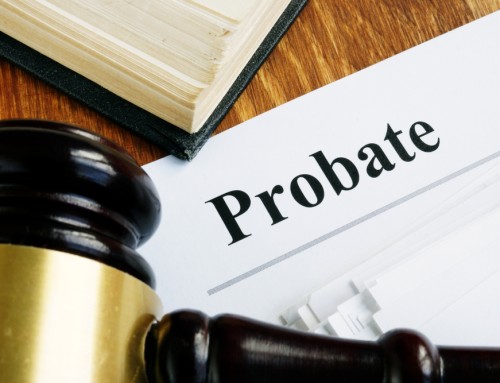Estate planning is one of the most important tasks you can tackle to ensure your loved ones are taken care of, even when you’re not around to make decisions. Whether you are concerned about medical decisions, guardianship for your children, or protecting your minor children’s assets, proper planning can give you peace of mind and help avoid difficult decisions later. In this blog, we’ll explore some of the essential documents you need in your estate plan, including living wills, guardianship designations, and documents that protect your children’s future.
What Is a Living Will, and Why Is It Important?
A living will is a critical document that outlines your healthcare preferences in the event that you are unable to communicate them yourself. It provides clear instructions for your doctors and loved ones about what you want in a situation where you are unable to make medical decisions.
Imagine being kept alive by a machine and having your family or loved ones asked whether they should pull the plug. This can be an incredibly difficult decision to make, and it can put a tremendous amount of emotional strain on the person responsible for making it. A living will removes that burden from your family and makes your wishes clear, ensuring that your instructions are followed in these sensitive situations.
Having a living will gives you control over your healthcare decisions, even if you are unable to express them due to medical reasons. It’s essential to discuss your wishes with your loved ones and ensure your living will is in place, so they don’t have to make tough decisions on your behalf during an already stressful time.
Guardianship Planning for Minor Children: Who Will Care for Your Kids?
If you have minor children, one of the most important aspects of your estate plan is deciding who will take care of them if something happens to you. Guardianship planning helps ensure your children are raised by someone you trust, even if you are no longer able to provide for them.
A guardianship designation allows you to appoint a person or people to raise your children until they reach adulthood. But there are many factors to consider when making this decision, including the location of your designated guardian(s) and how quickly they can step in if needed.
For instance, if you live in Scottsdale and have a guardian in Phoenix, the process is simple—they’ll be able to step in quickly if something happens to you. However, if your chosen guardian lives across the country, in New Jersey for example, it may take longer for them to be able to care for your children.
This is where short-term guardianship documents can come into play. You can appoint a temporary guardian who lives near your home to care for your children until your long-term guardians can take over. This can be a crucial step to ensure your kids are cared for immediately in the event of an emergency.
How Can You Protect Your Children from Unfit Guardians?
There may be situations where you have family members or other individuals who you absolutely do not want raising your children, whether due to personal circumstances or concerns about their ability to care for your kids. In these cases, it is possible to make your wishes clear and protect your children from being raised by unfit individuals.
One way to ensure this is done is by drafting a letter that specifically states you do not want certain individuals to be considered as guardians of your children. For example, if you have a family member who struggles with alcoholism or drug abuse, you can include that information in your document to make it clear to the court that you do not want them raising your children.
This letter can be signed by both you and your spouse (if applicable) and given to your long-term guardians. If your wishes are ever challenged in court, the letter can help back up your decision, ensuring that your children are raised by the individuals you trust.
Conservatorship for Minor Children’s Assets: Who Will Manage Your Kids’ Wealth?
Many parents want to ensure that their children’s financial interests are protected in the event of an emergency or untimely passing. If your children are minors, they may not have the legal capacity to manage assets or financial decisions. In these cases, appointing a conservator for your children’s assets can ensure their financial well-being is preserved.
Conservatorship involves appointing a trusted individual to manage assets that belong to your minor children until they are legally able to take control of those assets on their own, typically when they turn 18. Even if your children are not expected to inherit significant assets, there may be other reasons why they need a conservator—perhaps through gifts, insurance policies, or other sources.
For example, if your children are named as beneficiaries of life insurance policies or other assets, it’s important to name a conservator who will manage those funds until your children are old enough to take over. A conservator will be responsible for managing the money and making financial decisions on behalf of your children, ensuring that their assets are properly handled.
Final Thoughts on Estate Planning for Families with Minor Children
Estate planning is a key step in securing your children’s future and ensuring they are cared for, both emotionally and financially, in the event that you are no longer able to provide for them. Whether you need a living will, guardianship planning, or documents to manage your minor children’s assets, creating a comprehensive estate plan can help alleviate the stress and uncertainty that comes with life’s unexpected events.
Taking the time to carefully consider your options and make informed decisions about who will care for your children and how their financial interests will be managed is an investment in their future. By putting these plans in place now, you can ensure that your wishes are respected, and your children will be cared for, no matter what the future holds.
Book Your Free Consultation Today
Don’t leave your family’s future to chance. Start planning today by contacting KEYTLaw for expert legal guidance in estate planning. Our team is dedicated to providing comprehensive legal services tailored to your family’s needs.






